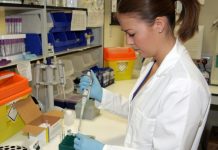With the age come a lot of health issues and a torn knee cartilage is one of them. In the past it was thought that performing surgery to repair the meniscal tears would improve the well being of the patients but the recent studies show that this surgery is a waste of time.
Statistics
Most patients suffering from arthritis are aware that keyhole knee surgery can’t help them. However, in spite of this, a lot of people not suffering from arthritis underwent the intervention in the hope to get rid of stiffness and joint pain.
The scientists concluded that most of the knee problems appear with old age due to the wear and tearing of the tissue and not because a trauma or an injury.
What is Keyhole Surgery?
This is a procedure in which a torn meniscus is partially or completely removed. A doctor introduces a scope in a small incision (hole) in the knee of the patient to observe and evaluate the condition of the meniscus. Arthroscopy otherwise named keyhole surgery consists in the removal of the damaged tissue.
The Study
The New England Journal of Medicine published the Finnish Degenerative Meniscal Lesion Study which came at a surprising conclusion: keyhole knee surgery is no better than placebo.
The study analyzed 146 patients with ages ranging between 35 and 65 which experienced meniscal tear because of wear rather than injury. None of these patients were suffering from arthritis.
The patients were divided in two groups and both groups were told they will undergo kneehole surgery to fix the meniscal tear.
One of the groups went through the surgery while the other had only a fake operation with the incision being made in the knee to evaluate the tissue without performing any other operation.
The Strange Result
None of the scientists and none of the people caring for the patients new which person had the real surgery and which had just the fake procedure.
The patients from the both groups reported significant changes for the better after a year from the procedure and when they were asked whether they would choose to have it again 93% from the group that had the actual operation responded affirmatively. 96% of the people from the fake operation group did the same.
Scientists were puzzled to see that both groups displayed lower symptoms after a year from the intervention and all of the patients stated they feel better post-surgery.












